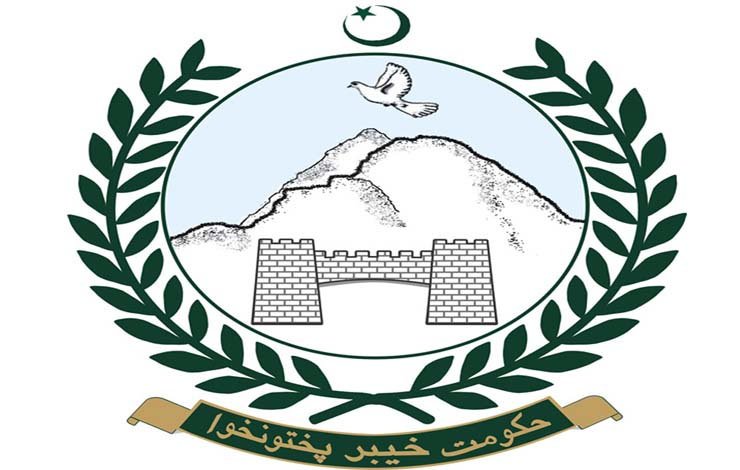KP Assembly outranks other legislatures in terms of transparency between 2018 and 2023: Pildat analysis

The Khyber Pakhtunkhwa Assembly outperformed the three other provincial assemblies in Pakistan in terms of transparency and access to information between 2018 and 2023, according to the findings of a comparative analysis by the think tank Pildat.
The Pildat or Pakistan Institute of Legislative Development and Transparency shared its findings of the measure of the performance of last elected provincial legislatures in a press release on Thursday, stating that the KP Assembly scored the highest — 8.5 of 11 — in terms of transparency on access to information.
It was the only one that provided the live telecast of assembly proceedings, it said, adding that while the live broadcast was initiated by the Punjab Assembly in 2002, the provincial legislature suspended it in 2021 and did not revive the practice.
The Punjab Assembly scored 7 out of 11, even though it was the only legislature that provided a complete record of the attendance of parliamentarians.
The third-ranked assembly on this scale was Balochistan’s legislature with a score of 6.5 while the Sindh Assembly was at the lowest tier, having a score of 5.5.
The Pildat also noted in its press release that the Balochistan Assembly was the only one that completed its five-year term on August 12 while the Punjab Assembly was dissolved prematurely on January 14, the Khyber Pakhtunkhwa Assembly on January 18 and Sindh Assembly on August 11.
It said the Sindh Assembly held the most number of sittings at 326 during the five-year period, convening 65 sessions per year on average. Meanwhile, the Punjab Assembly met for 274 days, holding 62 sittings per year on average. The KP Assembly convened 248 sessions with an average of 56 sittings per year and the Balochistan Assembly held 241 sittings with an average of 48 per year.
Accordingly, the Pildat press release said the Sindh Assembly was convened for most working hours — 921 hours — with an average of 184 hours and 20 minutes per year.
It was followed by the Balochistan Assembly, which was convened for 581 hours and 18 minutes with an average of 116 hours per year.
The KP Assembly met for 574 hours and 27 minutes with an average of 130 hours per year and the Punjab Assembly convened for 530 hours and 47 minutes with an average of 120 hours and 12 minutes per year.
The press release stated that the Balochistan Assembly outperformed the other three in terms of the chief ministers’ attendance. In Balochistan, chief ministers attended 31 per cent of the sittings, with then-chief minister Jam Kamal Khan attending 33pc sittings during his tenure and his successor, Mir Abdul Quddus Bizenjo attending 18pc of the sittings during his tenure.
Khan resigned as the CM on October 24, 2021 and Bizenjo was appointed as the province’s chief executive five days later.
In Sindh, then-CM Murad Ali Shah attended 26pc of the sittings and then 14pc sittings were attended of three CMs in Punjab during the tenure of the last legislature.
Usman Buzdar, who stepped down as the CM on March 28 last year, attended only 10pc sitting during his tenure spanning three years and seven months while Hamza Shehbaz, who was elected as CM on April 16, 2022, attended 57pc sitting during his three-and-a-half-month-long tenure. The last CM, Parvez Elahi, who replaced Hamza on July 26, attended 23pc sittings during his tenure of five and a half months.
Between 2018 and 2023, then-KP CM Mahmood Khan logged the lowest attendance, being present at just 8pc sittings held during his tenure of four years and five months.
Balochistan also came out on top in terms of the attendance of the opposition leaders, with Malik Sikandar Khan attending 63pc sitting during the assembly’s tenure.
He was followed by two former Sindh opposition leaders — PTI’s Haleem Adil Sheikh and Muttahida Quami Movement-Pakistan’s Rana Ansar — who together attended 56pc sittings during the assembly’s tenure.
Ex-opposition leader in the KP Assembly Akram Khan Durrani attended 38pc sittings and two former opposition leaders in Punjab — PTI’s Sibtain Khan and PML-N’s Hamza — attended 12pc sittings during their combined tenures.
The Pildat press release stated that even though the KP Assembly was dissolved seven months earlier than the end of its term, the legislature passed 188 bills — an average of 43 bills per year — during the legislature’s tenure spanning four years and five months.
Likewise, the Punjab Assembly passed 180 bills with an average of 41 bills annually, the Sindh Assembly passed 149 bills with an average of 30 bills per year and the Balochistan Assembly passed 96 bills with an average of 19 bills per year.



